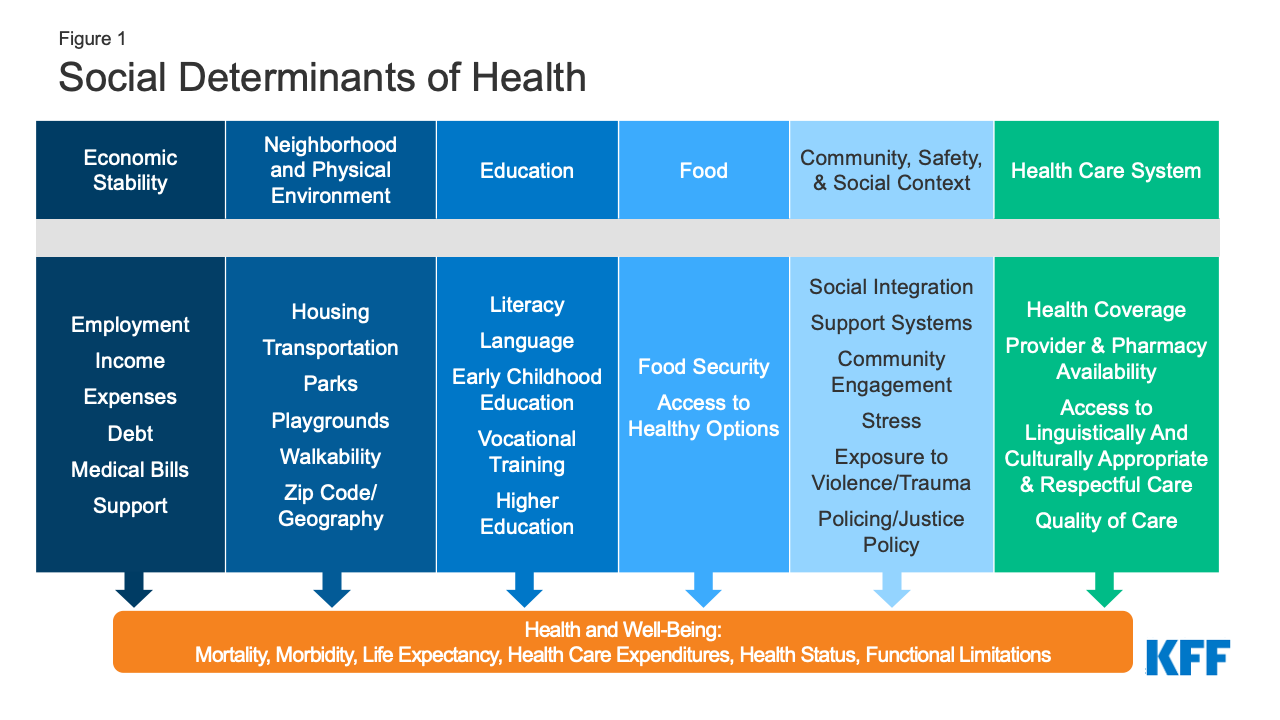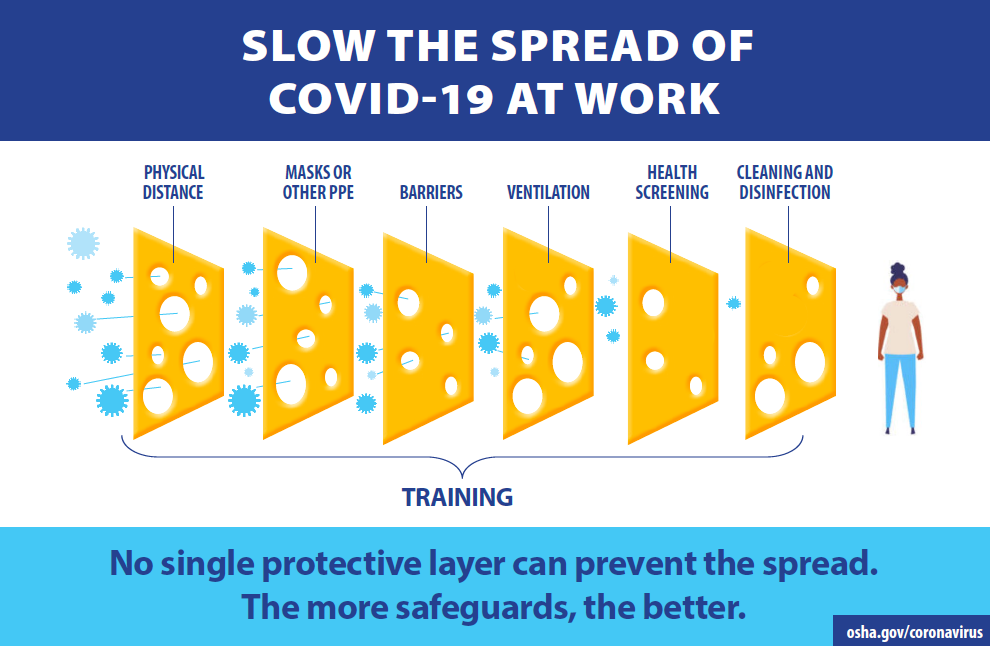Spring Break & COVID-19
Indianapolis was the city with the highest hotel occupancy rate in the nation this past week, thanks to hosting the NCAA men’s basketball tournament. However, it is not the only place seeing an increase in travel, as families and individuals, many of whom can work or study from anywhere, are hitting the road and heading to airports for Spring Break and holiday gatherings like Easter and Passover. While vaccination rates continue to go up, many public health experts are concerned that the rise in interstate travel, coupled with the presence of more contagious variants of the Covid-19 response, will threaten the infection containment progress made across the nation these past few weeks.
The Centers for Disease Control and Prevention have advised against non-essential travel during this time (more travel-related guidance is available here, here, and here), and many higher education institutions have cancelled spring break this year as well, replacing them with mid-week “mental health days.” Some colleges, like the University of California-Davis, have offered small “staycation” grants to encourage students to stick around this spring.
But after a year of restrictions, it’s clear that many students feel they could use more substantive time off:
“Bryant created an anonymous google form for fellow students to explain why they needed a spring break. She heard from students who planned to use the week to work extra hours to offset the rest of the semester; students who needed time for doctors appointments or to take care of family members; and international students taking classes overnight, who were hoping to actually keep some normal hours and see their families and friends for a few days.”
Furthermore, while higher education institutions have canceled their Spring Breaks, many schools around the country have not. This combination of cabin fever, the ability to Work/Study From Anywhere, and concerning Covid-19 trends raise questions about what ethical and legal steps communities and schools can take to protect against new travel-sparked outbreaks.
Travel Restrictions
Early in the pandemic, many states and some large cities implemented rules requiring travelers from out-of-state (both tourists and returning residents) to quarantine upon arrival. While travelers have challenged these policies for restricting peoples’ constitutionally-protected right to travel, courts consistently have sided with the states in these disputes. As of early March, only a handful of states still had policies in place placing restrictions or advisories on travelers into their state. Hawaii and Maine have among the most restrictive travel policies in place (failure to adhere to Maine’s travel policy can result in criminal penalties and up to a $1000 fine). This is not surprising, as both states tend to have numbers of tourists that far outnumber the number of local residents, elevating concerns about the “import” of cases into their state as well as the potential to overwhelm local health facilities with out-of-state Covid-19 patients.
Vaccine Passports
As Drs. Popescu and Phelan discuss in the New York Times, vaccine passport programs raise significant legal, ethical, and equity concerns, not to mention posing “logistical challenges surrounding how that data is collected, stored, verified and protected.” While there are still many details to iron out, it is clear that Covid-19 vaccine passports are coming soon to airports, vacation destinations, and workplaces in the United States. This past week, the state of New York announced the implementation of their vaccine passport system:
Starting Friday, New Yorkers will be able to pull up a code on their cell phone or a printout to prove they’ve been vaccinated against COVID-19 or recently tested negative for the virus that causes it.
The first-in-the-nation certification, called the Excelsior Pass, will be useful first at large-scale venues like Madison Square Garden, but next week will be accepted at dozens of event, arts and entertainment venues statewide. It already enables people to increase the size of a wedding party, or other catered event.
The app, championed by Gov. Andrew Cuomo to support the recovery of industries most affected by the pandemic, is funded by the state and available for free to businesses and anyone with vaccination records or test results in New York.
Like an airline boarding pass, people will be able to prove their health status with a digital QR code – or “quick response” machine-readable label. They’ll need to download the Excelsior Pass app, enter their name, date of birth, zip code and answer a series of personal questions to confirm their identity. The data will come from the state’s vaccine registry and also will be linked to testing data from a number of pre-approved testing companies.
It’s not yet clear, however, how this system will link up with those of other jurisdictions. According to the Washington Post, the Biden Administration has been working with the developers of many of these systems, but details of their efforts have been few, aside from administration officials declaring that such systems should be “simple, free, open source, accessible to people both digitally and on paper, and designed from the start to protect people’s privacy.”
What Can Schools Do?
Early in the pandemic, school districts implemented stay-at-home requirements for students who tested positive for the virus as well as direct contacts. However, with 40% or more of all Covid-19 cases arising due to asymptomatic spread, it’s not always certain that those carrying the virus will know, get tested, and report their diagnostic status to the school, let alone stay home from class and school activities.
When it comes to Spring Break, it is not likely that schools can obligate that families report to them whether they have traveled. Therefore, many school districts may be left to rely upon the honor system of parents to act appropriately given the knowledge they have about increasing their own risk as well as the risk to other families in the district.
Enforcement of Spring Break-related policies also can be challenging. While there have been some reports of school staff turning in other staff members based on social media posts, it is unlikely that school districts will commit staff to monitor student and/or staff social media during the break to see if community members are posting vacation pictures.
Concrete steps schools could take include:
- Remind students and parents of school policies concerning any travel-related policies and expectations.
- Offer guidance on the risks of travel during this time, as well as on how to stay safe during travel.
- Encourage staycations.
- Encourage testing and share information about testing sites. Remind students and their families that you can be tested for no cost if your reason for getting tested is you believe you may have been exposed to the virus in the last two weeks (an increased likelihood if you have traveled to a crowded Spring Break hot spot). Here are resources to find Indiana community-based testing sites and testing sites around the country.
- Colleges should ramp up on campus testing in the days immediately following the break, and should encourage students to seek out testing before they come back to campus.
- Go remote or offer the chance for students who travel to go hybrid for the week after Spring Break. Schools should keep in mind that a full school going remote can create added hardships for families. All families that may otherwise have been relying on their children being in school would need to make child supervision plans during an additional week of remote learning beyond the spring break period. This also would be an added burden for families that did not — or could not — travel, who are caught up in consequences caused by those who voluntarily chose the additional risk of going away.
More Notable Policies, Publications & Presentations
- Public Health Policy Playbook II: I am proud to be one of more than 50 public health law scholars to contribute to the more than 35 chapters appearing in this report on Covid-19-related laws and policies. You can find here my chapter on recent developments in law, policy, ethics, and equity related to contact tracing, quarantine, and isolation.
- New Study: US Public Health Neglected: Flat Or Declining Spending Left States Ill Equipped To Respond To COVID-19
- Social Determinants of Health
- New from the Kaiser Family Foundation, “One Year into the Pandemic: Implications of COVID-19 for Social Determinants of Health”
- Rental Assistance: More than $45 billion in rental assistance is now available
- Workplace health: OSHA has updated its interim enforcement response plan. It is interesting to note that, in the graphic on slowing workplace viral spread they include in their plan (see below), they do not include vaccination as a means through which to slow the spread. While the discussion of workplace vaccine mandates has been growing along with the vaccine supply, OSHA cannot include vaccination as a means of slowing the spread because to date, studies have only definitively shown the various vaccines’ capability for stopping severe cases from occurring, not viral infections.
- New from the Kaiser Family Foundation, “One Year into the Pandemic: Implications of COVID-19 for Social Determinants of Health”


